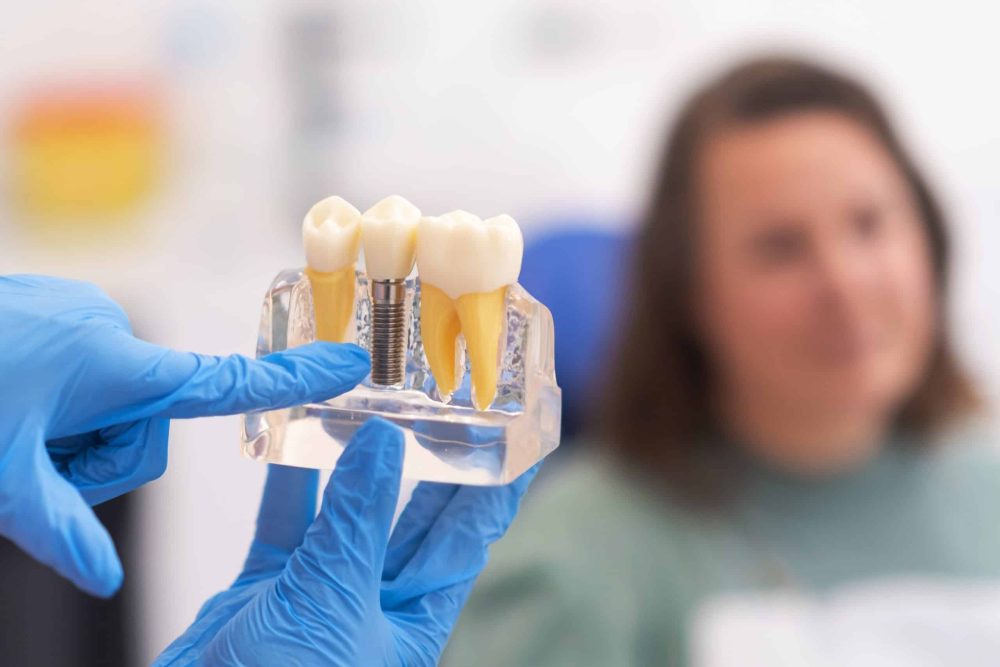Dental bridges are a popular dental solution for individuals with missing teeth. This dental procedure is an effective way to improve your smile and oral health, but many patients are unaware of its benefits. If you are considering dental bridges, it is essential to understand what they are, how they work, and what to expect during and after the procedure.
Dental bridges are prosthetic devices that we can use to replace one or more missing teeth. They consist of a replacement tooth (called a pontic) held in place by two or more dental crowns. We place the crowns on the teeth adjacent to the missing tooth or teeth, and they serve as anchors for the pontic.
The Procedure Involved in Getting Dental Bridges
Before getting a dental bridge, your dentist will thoroughly examine your teeth and gums to ensure you are a suitable candidate. If you have gum disease or tooth decay, we recommend treating these conditions before placing the bridge.
Once your oral health is stable, we’ll prepare the teeth supporting the bridge by reshaping them to accommodate the crowns. Impressions of your teeth will then be taken and sent to a dental lab, where the bridge will be fabricated. In the meantime, you’ll wear a temporary bridge to protect your teeth and gums. Once the permanent bridge is ready, your dentist will remove the temporary bridge and cement the permanent bridge in place.
What Are the Benefits of Dental Bridges?
Dental bridges offer a variety of benefits beyond just improving your smile. They can enhance your ability to chew and speak correctly, help to maintain the shape of your face, prevent remaining teeth from moving out of position, and distribute the forces in your bite evenly throughout your jaw. Dental bridges can last for many years with proper care, making them a cost-effective solution to missing teeth.
What Are the Risks Associated with Dental Bridges?
As with any dental procedure, some risks are associated with getting dental bridges. Some people experience sensitivity or discomfort in the teeth that support the bridge, and there is a risk of infection or decay if the bridge is improperly maintained. Patients may also experience difficulty flossing around the bridge and may need specialized floss or a water flosser to clean the area properly.
Are Dental Bridges Expensive?
This is a common question among patients seeking to restore their smile and oral health. It’s important to note that the cost of a dental bridge varies depending on several factors, such as the complexity of your treatment.
You can receive a personalized cost estimate specific to your situation by scheduling a consultation with our team. Our friendly staff will guide you through every step of the process and ensure that your bridge fits seamlessly into your daily routine. Don’t let missing teeth hold you back any longer – contact us today to schedule your appointment and take the first step towards a confident, healthy smile.
How Long Do They Last?
The good news is that dental bridges can last for a decade or more with proper care and maintenance. However, it’s important to note that the lifespan of a dental bridge can depend on various factors, including the material used, the location of the bridge in the mouth, and the patient’s oral hygiene habits. Regular dental checkups and cleanings can help extend the life of your dental bridge, so be sure to visit your dentist every six months to keep your smile healthy and bright.
Dental Bridges in Cypress, Texas
Dental bridges can be an effective solution for individuals with missing teeth. By understanding what dental bridges are, how they work, and their benefits and risks, you can decide whether they are right for you.
If you have any questions or concerns about dental bridges or other dental procedures offered by Handley Dental, please contact us. In addition to dental bridges, we offer general & family dentistry, cosmetic dentistry, and children’s dentistry in Cypress, Texas. Dr. Ron Handley and Dr. Katie Chang are here to help you achieve the smile you’ve always wanted!







